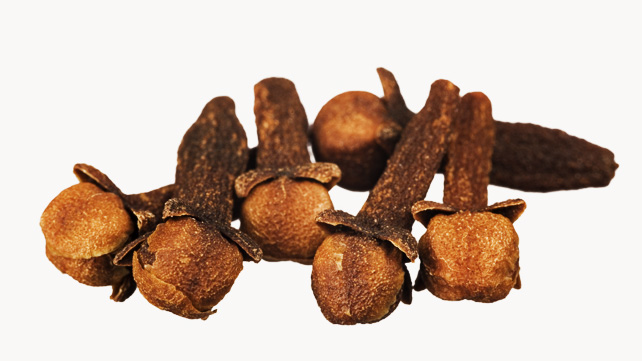You are out for a bash, excited about the delicious servings listed in the menu. Your favorite sweets, ice cream, cold drink, hot soup, and coffee are right there, calling you! As you take a sip of a hot or cold drink or maybe taste some sweets, shooting pain hits your teeth. And your plans for the day are gone!
Although your dentist has the final verdict about the problem, “sensitive teeth” can surely be the culprit.
Causes of sensitive teeth
Your teeth have three protective layers- enamel, cementum, and dentin. The innermost layer dentin is composed of numerous microscopic hollow tubes. When this layer somehow loses its covering, the tubules allow heat, cold or acidic food to irritate the nerves and cells inside the teeth. And this is why your teeth hurt on exposure to extreme temperatures or typical sour and sweet taste.
For people with sensitive teeth, even a scoop of ice cream is discomforting. Several factors such as acid reflux or over consumption of soft drinks and foods that are acidic like those citrus juices can contribute to the erosion of outer shield, the hard enamel giving rise to hypersensitivity. Swollen gums (or gingivitis) can also be a cause.
Do not worry! You aren’t alone! ‘Sensitive teeth’ hits the top in the list of dental problems. Thanks to the goodness of natural ingredients that work pretty well to kick off the issue without much help from the dentist.
Home Remedies for Sensitive Teeth
1. Coconut oil
 You can be happy with your toothpaste, only till you don’t get to realize the ill effects of the ingredients, it is composed of! Why be blind? Go for a safer option like the trending homemade coconut oil toothpaste which is capable enough to deal with tooth decay, sensitive teeth and other dental problems without degrading the oral hygiene or digging roots for any other health issues. And the best part is you can keep your wallet happy with this amazing alternative!
You can be happy with your toothpaste, only till you don’t get to realize the ill effects of the ingredients, it is composed of! Why be blind? Go for a safer option like the trending homemade coconut oil toothpaste which is capable enough to deal with tooth decay, sensitive teeth and other dental problems without degrading the oral hygiene or digging roots for any other health issues. And the best part is you can keep your wallet happy with this amazing alternative!
Coconut oil toothpaste recipe
- Take 6 tablespoons each of coconut oil and baking soda. You may heat your coconut oil on the stove if it is hard to access.
- Pour about 25 drops of your favorite essential oil. Eucalyptus and grapefruit oil are good enough to be used.
- Mix all the ingredients well to get a smooth paste.
- You can make a stock and store it in a jar for regular use.
Coconut oil can also be used to get rid of ear infection.
2. Oil pulling
Okay, we understand that the idea of oil pulling sounds gross! But before you decide to skip this remedy, we suggest, take a pause and see how it works.
When you allow some oil into your mouth, the fat in the oil binds to the bacterial film (technically, the biofilm) or the plaque that is destroying your teeth. And as you spit it off, the bacteria are pulled out along with the oil.
Try it as mentioned below
- Take about 1-2 teaspoons of coconut oil and add few drops of essential oil to it.
- Swish the solution for 20 minutes and later, spit it out in a trash can.
- Do not swallow it or spit it in the sink.
- Rinse your mouth well with warm salt water.
- Finally, brush your teeth and you are done!
Note – Do not take extremely sour, sweet, hot or cold food (at least up to half an hour or so) after oil pulling.
Having swollen gums too learn how to get rid of swollen gums.
Related video on Oil pulling for sensitive teeth relief
3. Chewing gum
Do not confuse this with the bubble gum that you chew all day! We are talking about sugar-free gum that protects your teeth and gums from acid and bacterial attacks.
It may not always be possible to brush teeth after every meal and this is what gives a chance to bacteria that party hard in your mouth by producing acid that decays the enamel. But as you chew sugar-free gum, your mouth produces the natural defense against this acid –saliva, thereby reducing the risk of enamel erosion that is a leading cause of sensitive teeth.
4. Baking soda Treatment
Baking soda has been known for improving overall dental health since long. It works like magic when it comes to whitening the teeth or removing plaque that can erode the protective layers.
Here’s how to use baking soda to get relieved from sensitive teeth
- Make a solution by adding baking soda, a pinch of salt and few drops of white vinegar in water.
- Dip your toothbrush in the resulting solution and brush your teeth gently for about 2-3 minutes.
- Rinse the brush well with water and use your regular toothpaste for brushing the teeth.
Note: Although baking soda is alkaline, using it more than twice a week can add to your miseries! If you feel irritation or burning sensation, chuck off the idea of using baking soda.
Baking soda is also good for skin care check this out.
5. Clove oil
 The problem of sensitive teeth often comes with throbbing pain that calls for prompt action. Clove oil is the best to handle such urgencies and its effectiveness can be credited to the key ingredient, eugenol. Eugenol has excellent anesthetic and antiseptic properties that address pain and kills germs effectively.
The problem of sensitive teeth often comes with throbbing pain that calls for prompt action. Clove oil is the best to handle such urgencies and its effectiveness can be credited to the key ingredient, eugenol. Eugenol has excellent anesthetic and antiseptic properties that address pain and kills germs effectively.
There are several ways you can use clove and clove oil to get away with your dental issues.
Here’s how
- Using ground cloves
- Rinse your mouth well with warm salt water.
- Grind some clove and apply a pinch of this powder in between your sore gums and cheek.
- Let the saliva mix with powder.
- Spit it out and you’ll be amazed by the instant relief that the remedy offers.
- Using whole cloves
- If your gums aren’t that sore, chew the cloves to allow the oil reach the affected area.
- Make clove oil compress
- Take half a teaspoon of olive oil and add a few drops of clove oil to it.
- Mix it well and allow a cotton swab to soak in this mixture.
- Hold this cotton swab against the sore tooth for few minutes to bring down the shooting pain.
Note: This remedy works on reducing the pain and not hitting the cause. If the symptoms do not vanish after a week or so, consult your dentist.
6. Acupressure points for sensitive teeth cure
Buying few minutes from the hectic schedule for acupressure is worth considering. All you need to do is locate the pressure points and apply moderate pressure to get relieved from aching nerves that make your teeth bad.
Here’s the process
- Apply moderate pressure on the skin that is right behind your ankle bone. Hold for a minute to let the pain leave your tooth slowly.
- If it’s just one side of your teeth that is aching, go for this one.
- Hold and squeeze the forefinger and thumb together with the hand that corresponds to the toothache location.
- Once you are done well enough with squeezing the thumb and forefinger together, you’ll notice a ridge formation.
- Now, use the opposite hand to apply light pressure on the middle of this ridge with your finger tip.
- Hold for a minute and the pain will melt away.
- Use your thumb and forefinger to grasp the second toenail area of the foot corresponding to the toothache. Gently, apply pressure towards the farthest side of your big toe and hold the point for a minute or two.
- Apply moderate pressure to the skin of the corresponding foot at a point that separates second and third toe. Hold for a minute or two and release the pressure gently. Your toothache will be gone!
Note: You may not want to go for all of these processes every time you decide to treat your sensitive teeth with acupressure. Just try them all for once and find out which one works best for you.
What happens in sensitive teeth and why my teeth is sensitive ?
Best foods for sensitive teeth
Making appropriate changes to the diets often supports the remedies and accelerates the recovery process. And ‘sensitive teeth’ is no exception to this. Include following foods in your diet as long as you have a sore tooth and gums to reduce the discomfort.
- Oxalate-rich foods
When you eat oxalate-rich foods, the oxalate crystals in it precipitates on your teeth in order to plug up the narrow tubules of the dentin. This reduces the possibility of food reaching the nerves and cells inside the teeth, thereby eliminating the cause.
Check out the list of oxalate-rich foods
- Spinach
- Bananas
- Rhubarb
- Okra
- Beets
- Swiss chard
- Leeks
Note : Do not overeat it. Consult your dietician about the amount, especially if you have medical issues such as kidney stones.
- Dairy products
The whole theory revolves around protecting the dentin membrane and redeveloping the protective layer. When you intake dairy products, the casein protein present in it develops a layer on your teeth. This protective layer then acts as a physical barrier to help minerals stay in the tooth along with providing a buffer against acids and ensuring that the dentin pores are less sensitive.
So add lots of dairy products to your diet. But do not forget that your teeth are still sensitive to extreme hot and cold!
Foods to avoid for sensitive teeth
The bitter truth is when you have bad teeth, you have no option but to say no to most of the foods you love! If you are really serious about the hypersensitivity of your teeth, you should say a big ‘NO’ to following foods no matter what comes in.
- Hot and cold drinks: Hot soup is soothing to sore teeth but might end up elevating the sensitivity. So if you are really crazy for drinks, use a straw to sip so that your teeth are not exposed directly to the extreme temperature.
- Food rich in acids: Citrus fruits and pickles can add on to your misery by further eroding the enamel and other protective layers by the action of acids that they contain.
- Sticky food and foods that are hard to munch: Take a break from chocolates and candies! Caramel can make pain worse and the crunchy part can contribute to wear and tear of the protective layers.
FAQ
Best toothpaste for sensitive
There are a lot many kinds of toothpaste hitting the market these days, specifically developed to impart relief from sensitive teeth. But the fact that most of them contain one or the other chemicals that aren’t very good for oral health makes it hard to decide.
Although calcium or potassium based desensitizing or mineralizing toothpaste are usually helpful, the best you can do is prepare your own toothpaste with one of the recipes mentioned or consult your dentist for the final word.
Having Sensitive teeth after filing
Fillings are often done to replace the decayed area of a bad tooth. But often, due to one of the following reasons, your teeth might develop sensitivity.
- You might be allergic to the material used as a filler such as silver.
- The fitting of the tooth may not be perfect, giving rise to a shooting toothache.
Sometimes, the tooth turns sensitive to hold and cold for a week after filling process is done. This is normal. But if the pain and sensitivity persist for long, consult your dentist immediately.
Mouthwash for sensitive teeth
Mouthwashes work in two ways. One is by imparting an anesthetic effect and the other is by coating the exposed tooth enamel. Amongst the whole pool of commercial products, Listerine is one option that you can rely on. Rinse your mouth with the solution at least once a day, preferably before going to bed.




